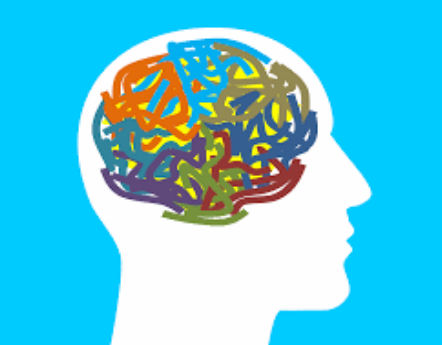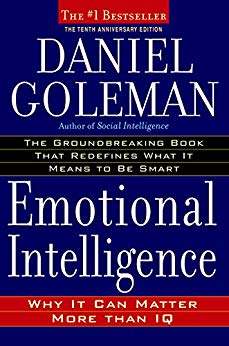

This article is an excerpt from the Shortform summary of "Emotional Intelligence" by Daniel Goleman. Shortform has the world's best summaries of books you should be reading.
Like this article? Sign up for a free trial here .
Between IQ and EQ, or general intelligence and emotional intelligence, which is more important? Is EQ or IQ more important in work? Or in relationships?
Many cultures, particularly Western ones, place a lot of emphasis on intelligence as a barometer of success. We’ve even developed tests to measure our intelligence, resulting in a score known as our intelligence quotient, or IQ. But data suggests that IQ only accounts for about 20% of success in life, with the remaining 80% being made up by other factors, emotional intelligence included. And much more research has been done on IQ vs EQ, emotions and emotional intelligence, despite the fact that emotions are hard-wired in the human brain and make us the species we are.
IQ is fixed: what we’re born with is what remains throughout our lives. But emotional intelligence can be taught and learned–we have the ability to improve upon our emotional intelligence throughout our lives.
IQ might reflect how smart we are, but it has nothing to do with how we handle our emotional lives. Passions and impulses can derail even those with the highest IQs.
- In the 1940s, a study followed 95 Harvard students into middle-age. Men with higher IQ test scores were not more successful than students with lower test scores in terms of productivity, status, or salary in their field. And they did not have more life satisfaction than other students either, in regards to personal relationships with friends, family, and romantic partners.
IQ determines how well we can handle cognitive demands–that’s why it’s good for predicting what job you might be suited for. But, for example, if a company employs a handful of experts within any given field, IQ will not help determine which of those experts will be the most successful. Data suggests that IQ only accounts for about 20% of success in life, with the remaining 80% being made up by other factors, emotional intelligence included.
Emotional intelligence (EQ) has one major benefit over IQ: IQ is fixed–what we’re born with is what remains throughout our lives. But emotional intelligence can be taught and learned–we have the ability to improve upon our emotional intelligence throughout our lives. This is the major factor that makes emotional intelligence potentially more important for success than IQ: it’s within our control.
Corporations report that emotional intelligence EQ (vs IQ) determines which employees will be better leadership material.
Emotional intelligence programs in schools also show definite positive results:
- Children improve their achievement scores and grade-point averages.
- Disciplinary incidents decrease, as do necessary punishments.
- Attendance rates and positive behavior increase.
But research on emotions is sparse, so most people don’t have a good understanding of what’s going on when they have an emotional reaction, or how they can work to control their response to that emotional reaction.
In this summary, we’ll first explore emotions, what they are, and where they come from. Then we’ll delve into emotional intelligence and its benefits. Finally, we’ll look at using emotional intelligence in specific categories.
Unlike IQ, EQ or emotional intelligence encompasses the 5 following skills:
- Knowing your emotions.
- Managing emotions, specifically negative ones like anger, anxiety, and sadness.
- Motivating yourself.
- Recognizing emotions in others, or empathy.
- Handling relationships.
Someone with high emotional intelligence can regulate her moods, control her impulses, motivate herself, empathize with others, and hope, within reason, that things will turn out all right. Emotional intelligence is really a meta-ability, an ability that determines how well we can put all our other abilities to use, including IQ.
———End of Preview———

Like what you just read? Read the rest of the world's best summary of Daniel Coleman's "Emotional Intelligence: Why It Can Matter More than IQ" at Shortform . Learn the book's critical concepts in 20 minutes or less .
Here's what you'll find in our full Emotional Intelligence summary :
- What are emotions? Why do we have them?
- What is emotional intelligence? Why is it important?
- How do you manage your own emotions? Anger, anxiety, and sadness?
- How can you approach your relationships with more emotional intelligence?
- How can you teach your children emotional intelligence?
- How can emotional intelligence boost your career?






